Regional
US top commander suggests “greater flexibility” to potentially keep more U.S. troops in Afghanistan

The top American commander in Afghanistan, Gen. John Campbell said that he had suggested the several options scheme to US top commanders about the withdrawal process of international troops from Afghanistan.
Gen. Campbell said that he wants “greater flexibility” to potentially keep more U.S. troops in Afghanistan than are called for under the drawdown plan President Obama outlined last year.
Campbell noted his views are influenced in part by Afghan President Ashraf Ghani’s request for more U.S. support for Afghan forces in areas including logistics, intelligence and air support.
Army Gen. John Campbell said, “I have provided options to my chain of command” and noted that Afghan President Ashral Ghani has also asked for “some flexibility” in the schedule that would bring the American force down to about 1,000 by the end of 2016. That force would be concentrated at the U.S. Embassy in Kabul and an assistance mission at nearby Bagram.
When asked about his definition of success in Afghanistan, Campbell said one measure is “the cooperation I see between police and the Army is quite good.” Right now, he said the Afghans control all district centers. He added that if one center was captured that it would retaken in “six or seven hours.”
They also are opening opportunities for younger officials to advance. As an example, Campbell said Ghani had retired 48 generals the day before the hearing and had retired 15 others when he took office. “Leadership makes a difference;” and for lieutenant colonels and colonels, “there is hope to move up.” He also noted that the Afghan army is now recruiting year-round and not just in the winter, when its soldiers are not engaged in combat.
Around 10,800 American soldiers and 2000 coalition forces are currently staying in Afghanistan to train and consult Afghan security forces.
In the meantime, Committee Chair Sen. John McCain said “the calendar-based approach” to withdrawal that would see about 5,500 coalition forces remaining in Afghanistan during the height of the summer “fighting season.” Combat traditionally ends in late September as the snows begin falling in the mountains. There are now about 12,900 coalition forces in training and assistance missions across the country in places such as Kandahar, Jalalabad, Herat and Kabul.
This comes as one of the top US commanders on Wednesday said that President Obama will reexamine President Ghani’s suggest on slow process of withdrawal of international troops from Afghanistan.
Reported by Fahim Noori

Regional
US used mobile launchers for missiles at Qatar base as Iran tensions rose, satellite pictures show
At al-Udeid, the Patriot missiles were visible parked mounted into M983 Heavy Expanded Mobility Tactical Trucks (HEMTT) at the start of February, Goodhind said.
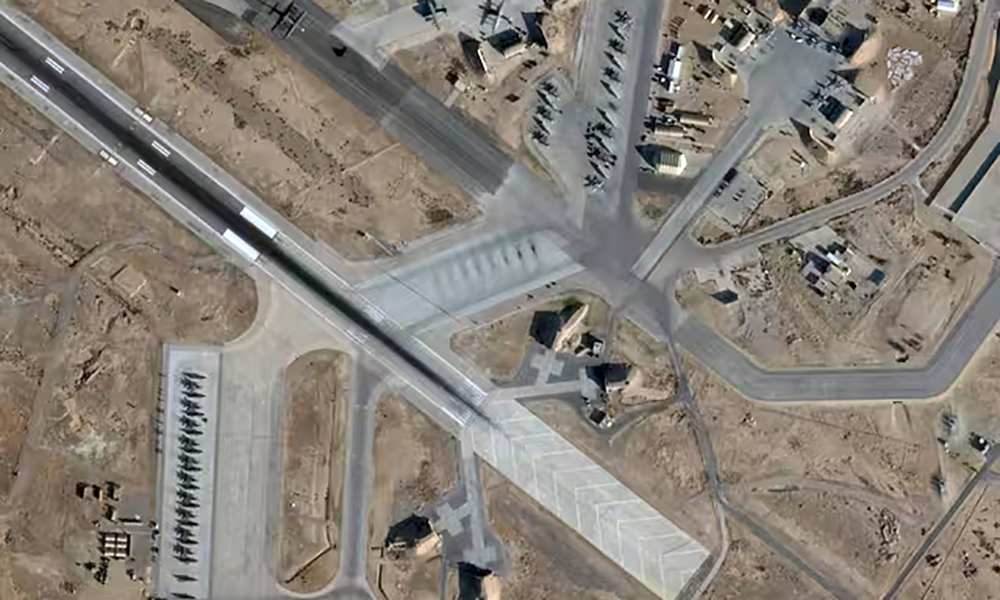
U.S. forces in Qatar’s al-Udeid, the biggest U.S. base in the Middle East, put missiles into truck launchers as tensions with Iran ratcheted up since January, analysis of satellite images showed, meaning they could be moved more quickly, Reuters reported.
The decision to keep the Patriot missiles in mobile trucks rather than semi-static launcher stations — meaning they could rapidly deploy to strike or be moved defensively in case of an Iranian attack — shows how risks heightened as frictions grew.
U.S. President Donald Trump has threatened to bomb Iran over its nuclear and ballistic missile programmes, its backing for allied groups in the Middle East and crushing of internal dissent, though talks to avert a war continue.
There are also U.S. bases in Iraq, Jordan, Kuwait, Saudi Arabia, Qatar, Bahrain, the United Arab Emirates, Oman, Turkey and on Diego Garcia in the Indian Ocean.
Iran’s Revolutionary Guards have warned that in case of strikes on Iranian territory, they could retaliate against any U.S. base.
A comparison of satellite photographs in early February with those taken in January shows a recent build-up of aircraft and other military equipment across the region, said William Goodhind, a forensic imagery analyst with Contested Ground.
At al-Udeid, the Patriot missiles were visible parked mounted into M983 Heavy Expanded Mobility Tactical Trucks (HEMTT) at the start of February, Goodhind said.
“The decision to do so gives the Patriots much greater mobility, meaning they can be moved to an alternative site or repositioned with greater speed,” he said.
It was not clear on Tuesday whether the missiles were still in the HEMTTs.
A spokesperson for the Pentagon was not immediately available for comment.
Iran says it has replenished its missile stocks after two weeks of conflict last summer when Israel bombed its nuclear facilities and some other military targets, a campaign that the United States joined late on, read the report.
Iran has underground missile complexes near Tehran, as well as at Kermanshah, Semnan and near the Gulf coast.
The Iranian naval drone carrier IRIS Shahid Bagheri was visible in satellite photographs on January 27 at sea some 5 km from Bandar Abbas. It was also visible near Bandar Abbas on February 10.
Here are changes at U.S. Middle East bases observed in satellite pictures:
AL-UDEID, QATAR:
Images from February 1 showed an RC-135 reconnaissance aircraft, three C-130 Hercules aircraft, 18 KC 135 Stratotankers and seven C-17s. On January 17 there had been 14 Stratotankers and two C-17s.
Up to 10 MIM-104 Patriot air defence systems were parked in HEMTTs.
MUWAFFAQ, JORDAN:
Images from February 2 of one location in Muwaffaq showed 17 F15-E strike aircraft, 8 A-10 Thunderbolt aircraft, four C-130s and four unidentified helicopters. Images from January 16 were low resolution and it was not possible to identify all aircraft there.
February 2 images of a second location in Muwaffaq showed a C-17 and a C-130, as well as four EA-18G Growler electronic warfare aircraft. Pictures of that location on January 25 had not shown any aircraft.
OTHER BASES:
At Prince Sultan base in Saudi Arabia, images on February 2 showed a C-5 Galaxy and a C-17 aircraft. Images on December 6 showed five aircraft that appeared to be C-130s.
Satellite images from February 6 showed seven more aircraft than had been observed on January 31 at Diego Garcia in the Indian Ocean.
Images taken on January 25 and February 10 showed an increase in aircraft at Dukhan base in Oman.
Regional
Arab states condemn Israel’s move to expand powers in occupied West Bank
Israel’s security cabinet approved measures that will make it easier for Jewish settlers to purchase land in the West Bank and grant Israeli authorities greater powers in areas under Palestinian control.
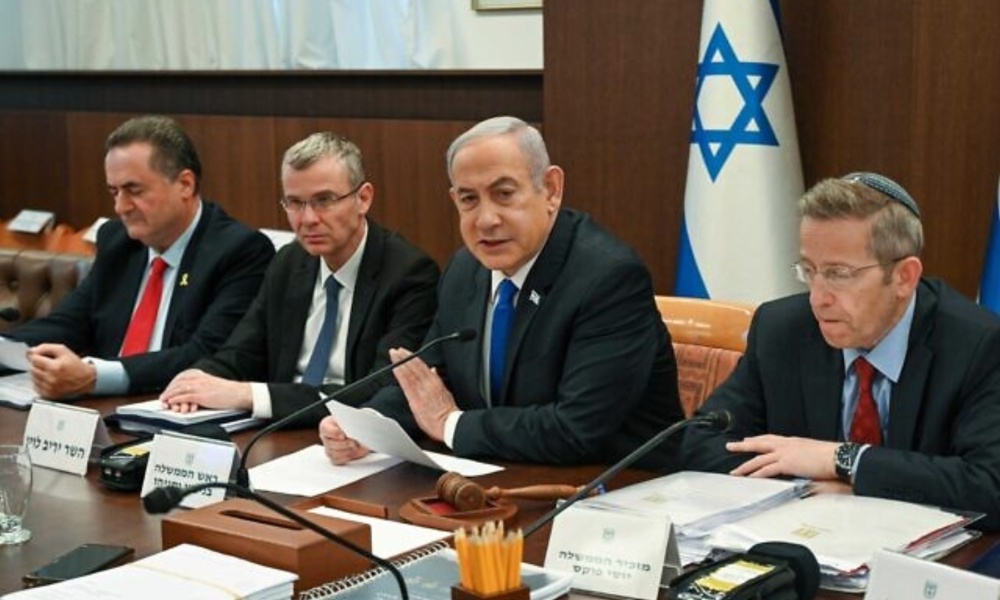
Saudi Arabia, Jordan and the United Arab Emirates led regional condemnation on Monday of Israel’s decision to ease settlement expansion and broaden its authority across the occupied West Bank, a move critics say amounts to de facto annexation.
Israel’s security cabinet approved measures on Sunday that will make it easier for Jewish settlers to purchase land in the West Bank and grant Israeli authorities greater powers in areas nominally under Palestinian control, Reuters reported citing two senior Israeli ministers.
Finance Minister Bezalel Smotrich, an ultranationalist figure in Prime Minister Benjamin Netanyahu’s coalition, said the decisions would “continue to kill the idea of a Palestinian state.”
In a joint statement, foreign ministers from several Middle Eastern and Muslim-majority countries — including Egypt and Turkey — denounced the measures as illegal under international law and warned they would undermine prospects for a two-state solution and regional stability.
Jordan, Egypt, the UAE and Turkey all maintain diplomatic ties with Israel, while Saudi Arabia has said it will not normalise relations without the establishment of a Palestinian state.
Most countries view the West Bank, occupied by Israel since 1967, as the core of a future Palestinian state.
Israeli Defence Minister Israel Katz and Smotrich said the cabinet had repealed a pre-1967 Jordanian-era law that kept land registries confidential and scrapped a permit requirement for land purchases, steps they said would simplify transactions for Jewish buyers.
Settlement watchdog Peace Now said the move violated international law and marked a significant step toward annexation. “This treats the West Bank as normal Israeli territory rather than occupied land,” said Hagit Ofran of the group.
The cabinet also expanded Israeli enforcement powers over water use, archaeological sites and environmental issues into Areas A and B of the West Bank — zones that, under the 1993 Oslo accords, are under Palestinian or joint control. Peace Now said the changes could pave the way for wider demolitions of Palestinian property and further restrictions on Palestinian development.
U.N. Secretary-General Antonio Guterres expressed “grave concern,” warning the measures were eroding the viability of a two-state solution, his spokesperson said.
In Hebron, Palestinians said the decisions would accelerate settlement growth and home demolitions. “It becomes easier to confiscate land, expand settlements and demolish Palestinian homes,” said Issa Amr of the group Youth Against Settlements.
Regional
Iran arrests at least four reform front politicians
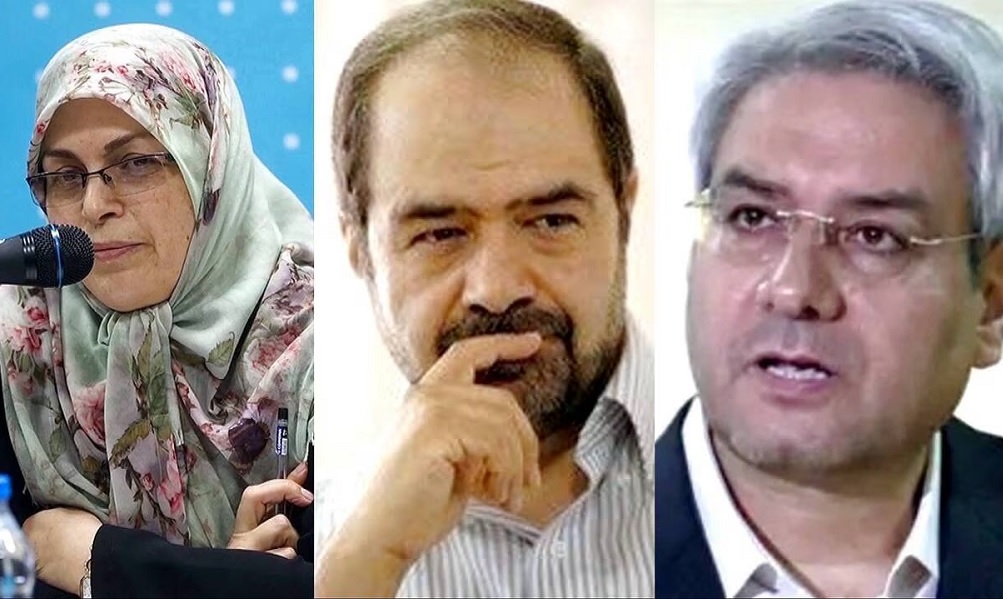
The Islamic Iran Nation’s Union Party sought the release of secretary-general Azar Mansouri, the Shargh newspaper said on Monday, after her arrest along with other members of the Reform Front, an umbrella body of Iranian reformists and moderates.
A campaign of mass arrests and intimidation has led to the arrests of thousands as authorities seek to deter further protests after last month’s crackdown on the bloodiest unrest since the 1979 Islamic Revolution.
On Sunday, state media said three senior figures from Iran’s Reform Front were arrested, among them Ebrahim Asgharzadeh, Mohsen Aminzadeh, and Azar Mansouri, who acts as the front’s head, according to Reuters.
Shargh said at least two more Reform Front members were asked to report to the prosecutor’s office in Tehran’s Evin prison on Tuesday.
The Reform Front’s spokesperson, Javad Emam, was also arrested, Mansouri’s lawyer, Hojjat Kermani, said on Monday, adding that it was unclear what charges faced those detained.
“We basically don’t know what caused these arrests, because the Reform Front has not yet issued a statement about the recent events (protests),” Kermani told the Iranian Labour News Agency (ILNA). “Individuals may have commented on their own.”
On Sunday, the judiciary’s media outlet Mizan said “four important political elements supporting the Zionist (regime) and the United States” were indicted, but gave no details.
Tehran has blamed unrest-related violence on “rioters and armed terrorists” it says were backed by its key enemies, Israel and the United States.
Past Reform Front statements have been highly critical of authorities. After the 12-day war against Israel, its members warned that “incremental collapse” awaited the country if it did not adopt fundamental reforms.
Kermani said the recent arrests were not related to a judicial case launched against the Front after that statement, however.
-

 Latest News5 days ago
Latest News5 days agoAfghanistan to grant one- to ten-year residency to foreign investors
-

 Sport5 days ago
Sport5 days agoIran clinch AFC Futsal Asian Cup 2026 in penalty shootout thriller
-

 International Sports4 days ago
International Sports4 days agoWinter Olympics gain momentum as medal table takes shape
-

 Latest News5 days ago
Latest News5 days agoTraffic police receive new cars
-

 Sport3 days ago
Sport3 days agoChampions League Elite action continues as qualification race tightens
-
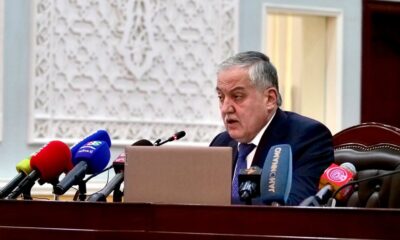
 Latest News4 days ago
Latest News4 days agoTajik foreign minister urges international community to help Afghanistan address its challenges
-
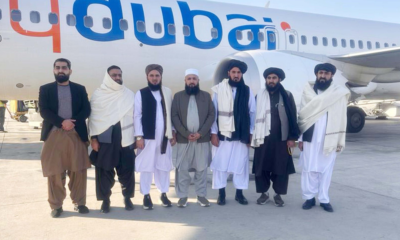
 Latest News4 days ago
Latest News4 days agoAfghan counter-narcotics delegation travels to Indonesia
-
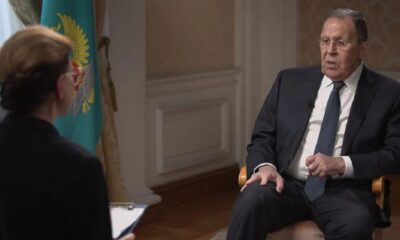
 Latest News3 days ago
Latest News3 days agoTerrorist activities observed along Afghanistan borders, says Lavrov















